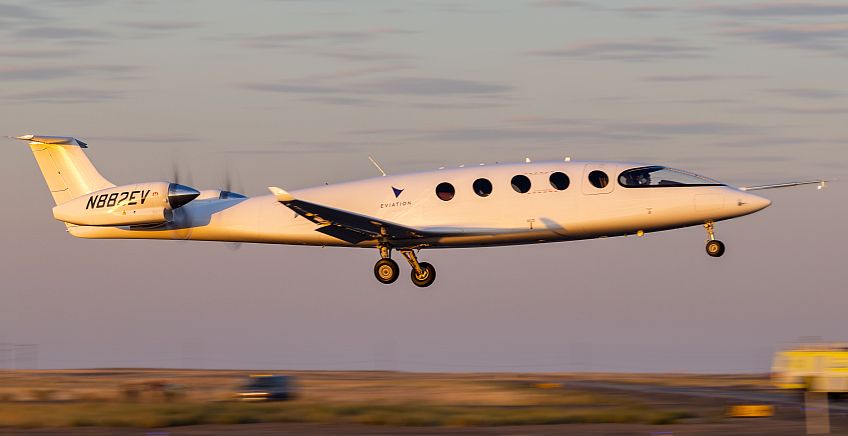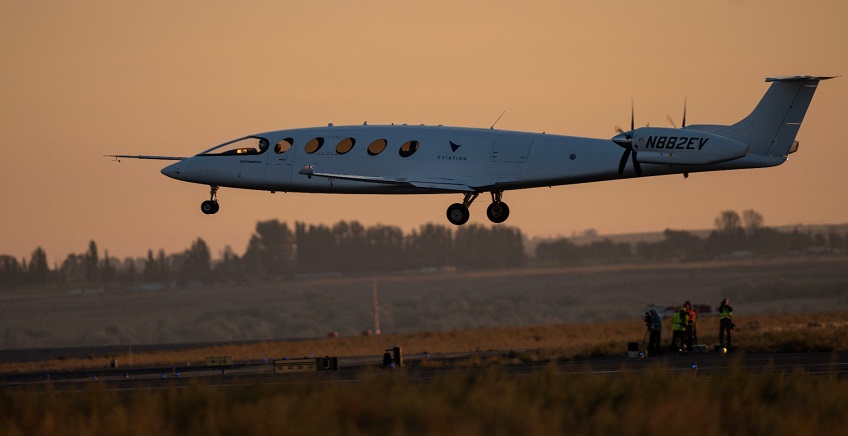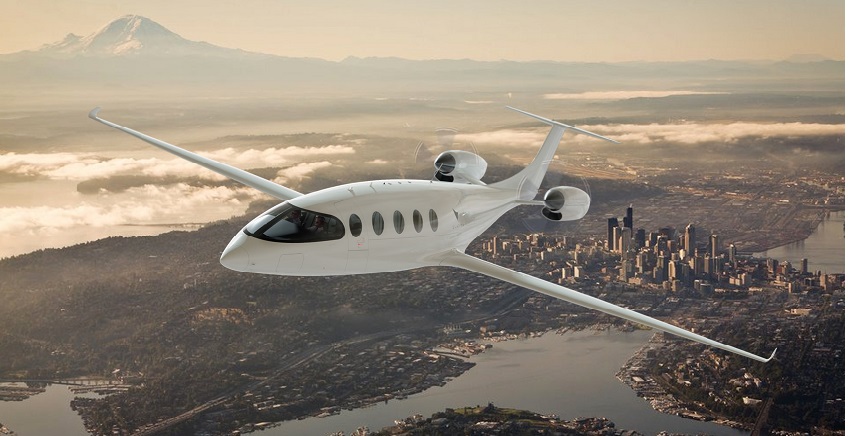Following the historical debut test flight of the all-electric Alice aircraft last month, Eviation is preparing to move forward with the licensing processes and preparing the infrastructure for manufacturing, assembly, and delivery of the flits for its first customers, which already placed orders for 140 cargo and commuter aircrafts. The company plans to make three more planes that will be used in the coming years for the required test flights, with the target of starting commercial flights in 2027.
Alice’s first test flight lifted on September 28 from Grant County International Airport (MWH). The plane took off to an altitude of 3,500 feet for 8 minutes before landing back. It was the first time the Federal Aviation Administration (FAA) has certified an all-electric demonstration flight.
“It was history in the making”
Two of the people present at the demonstration were CEO Gregory Davis, who was appointed to this position 6 months ago in place of co-founder Omer Bar-Yohay, and CTO Lior Zivan, who monitored flight data from control room. In a conversation with Techtime, the two talked about the excitement of the first flight and the path that remains until the sky will be filled by the company’s electric planes.
Davis: “Alice demonstrates the greatest development in aviation world since the transition from piston engine to the jet engine. It was an amazing feeling to see the plane take off and later return after mission successfully completed. Everyone in the field knew they see history in its making”.
Zivan: “We aware of the importance of our work for both sustainability and for connecting between communities. It is the future of aviation. This is a once in a lifetime experience”.
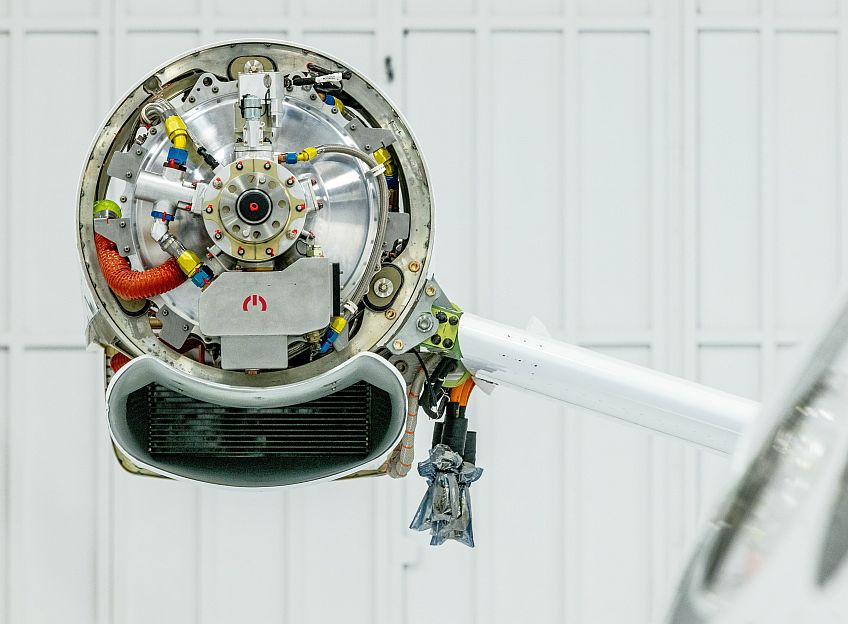
Reviving the regional flights market
Alice is powered by two electric motors and does not emit carbon. It can carry up to nine passengers for 620 miles and 260 knots operating speed, and is targeted for the regional short flights market, which usually consists of flight routes of a few hundreds miles between cities within the same state. In the US, for example, such lines exist between Miami and Orlando, or between Dallas and Houston. Flights from Tel-Aviv to Eilat are also considered regional. These flights are usually operated by small planes, taking off and landing at small airports.
In recent years, the volume of the regional flights is steadily decreasing, mainly due to the high operational costs. According to Davis, Eviation’s plane can revive this market. “The key for the future regional flights market is costs reduction and environmental focus. The regional aviation is decreasing year by year in the last two decades, and we observe shift to larger planes between larger airports”.
“Alice’s operation costs are 90% lower than equivalent jet plane. No air pollution is produces and it is much quieter. Electric aviation will make huge transformation at the economic and environmental levels. It will commute people easily and will connect between communities in a cleaner and convenient ways. This will assist in reviving the dwindling market and many small airports currently stand deserted”.
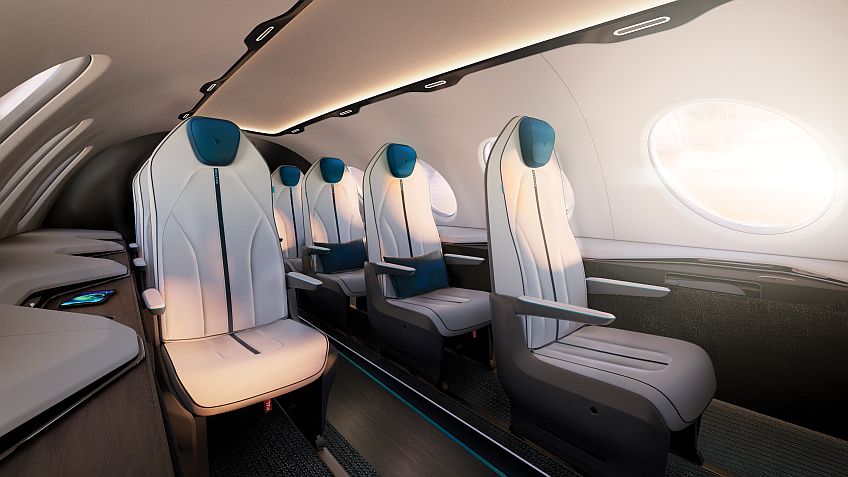
All-electric, all-electronic
Alice is a full all-electric plane, and it is controlled by a fully electronic pilot control system (fly-by-wire). While in conventional planes the pilot controls by mechanical or hydraulic means over the actuators that operate the various systems , the electric plane’s systems are controlled by electronic commands, including the tiller, engines, and the landing gear. Today, fly-by-wire systems are usually in use in large commercial planes such as Boing 777/787 or Airbus A340 and A350. Alice is the first small passengers’ plane (classified as FAA’s Part 23 rules for small airplanes) in the industry that is fully all-electric.
According to Zivan, this is a landmark no less important than the electric propulsion. “With fly-by-wire the pilot is using the computer to control the flight. The advantage of using this method is the ability to add safety improvements and human errors protection mechanisms, and make the flight much easier and safer, for example in severe weather conditions”. Eviation developed Alice’s control systems in collaboration with industry leaders such as Honeywell, Parker Lord, and Curtis Wright. “Developing the system was a joint effort. This is a highly complexed systems, involving many systems within the plane”.
Battery capacity is not a limit?
“Today’s batteries enable us to operate commercial flights between cities. Already today there are thousands of flights that Alice can serve. As technology advances, the number of potential lines will increase. I believe that the development in the batteries industry in the next years will make it possible for us to reach greater flight ranges and higher speeds”.
Until now, the company received letters of intents from companies intending to place orders for 140 cargo and commuter aircrafts. In April 2022, Massachusetts’ Cape Air announced its intention to place order for seventy-five units, and few weeks ago, Eviation reported another letter of intent received from Miami’s GlobalX, showing interest in purchasing fifty electric Alice aircrafts.
Senior representatives of these companies also attended at the demonstration flight, and they issued enthusiastic responses. Davis: “We have amazing customers, who are also partners to our vision. Alice is an essential component in their long-term environmental strategy. Cape Air, for example, strive to reach zero-emission flights. Alice’s current model can serve about 80% of their airline routes”.

